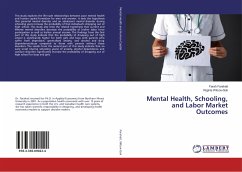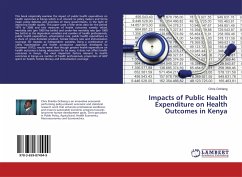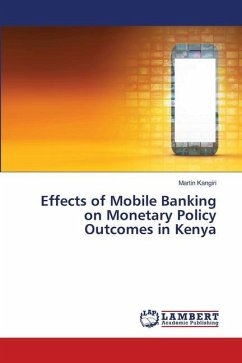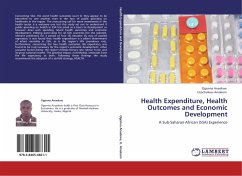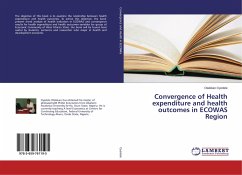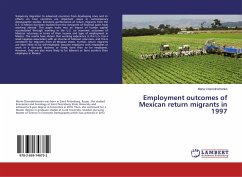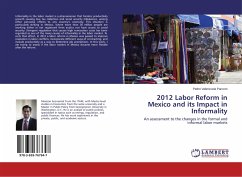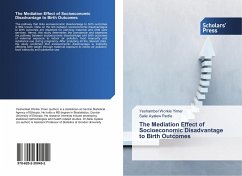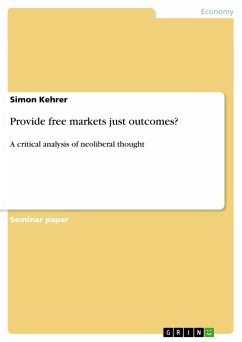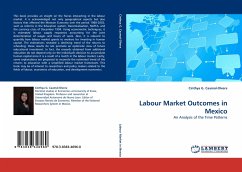
Labour Market Outcomes in Mexico
An Analysis of the Time Patterns
Versandkostenfrei!
Versandfertig in 6-10 Tagen
52,99 €
inkl. MwSt.

PAYBACK Punkte
26 °P sammeln!
This book provides an insight on the forces interacting in the labour market. It is acknowledged not only geographical aspects but also factors that affected the Mexican Economy over the period 1988-2002, such as reforms in the Education system, Decentralisation, NAFTA, and the currency crisis of December 1994. Using econometric techniques, it is estimated labour supply responses accounting for the joint determination of wages and hours of work. Also, it is relevant to quantify how labour market grants to workers for investing in human capital. The estimations revealed a declining trend of the...
This book provides an insight on the forces interacting in the labour market. It is acknowledged not only geographical aspects but also factors that affected the Mexican Economy over the period 1988-2002, such as reforms in the Education system, Decentralisation, NAFTA, and the currency crisis of December 1994. Using econometric techniques, it is estimated labour supply responses accounting for the joint determination of wages and hours of work. Also, it is relevant to quantify how labour market grants to workers for investing in human capital. The estimations revealed a declining trend of the returns to schooling; these results do not promote an optimistic view of future educational investment. In fact, the rewards obtained from additional education do not depend only on the individual's decision to accumulate human capital since it is a result of a match in the labour market. Lastly, some explanations are proposed to reconcile the estimated trend of the returns to education with a simplified labour market framework. This book may be of interest to researchers and policy makers related to the fields of labour, economics of education, and development economics.



